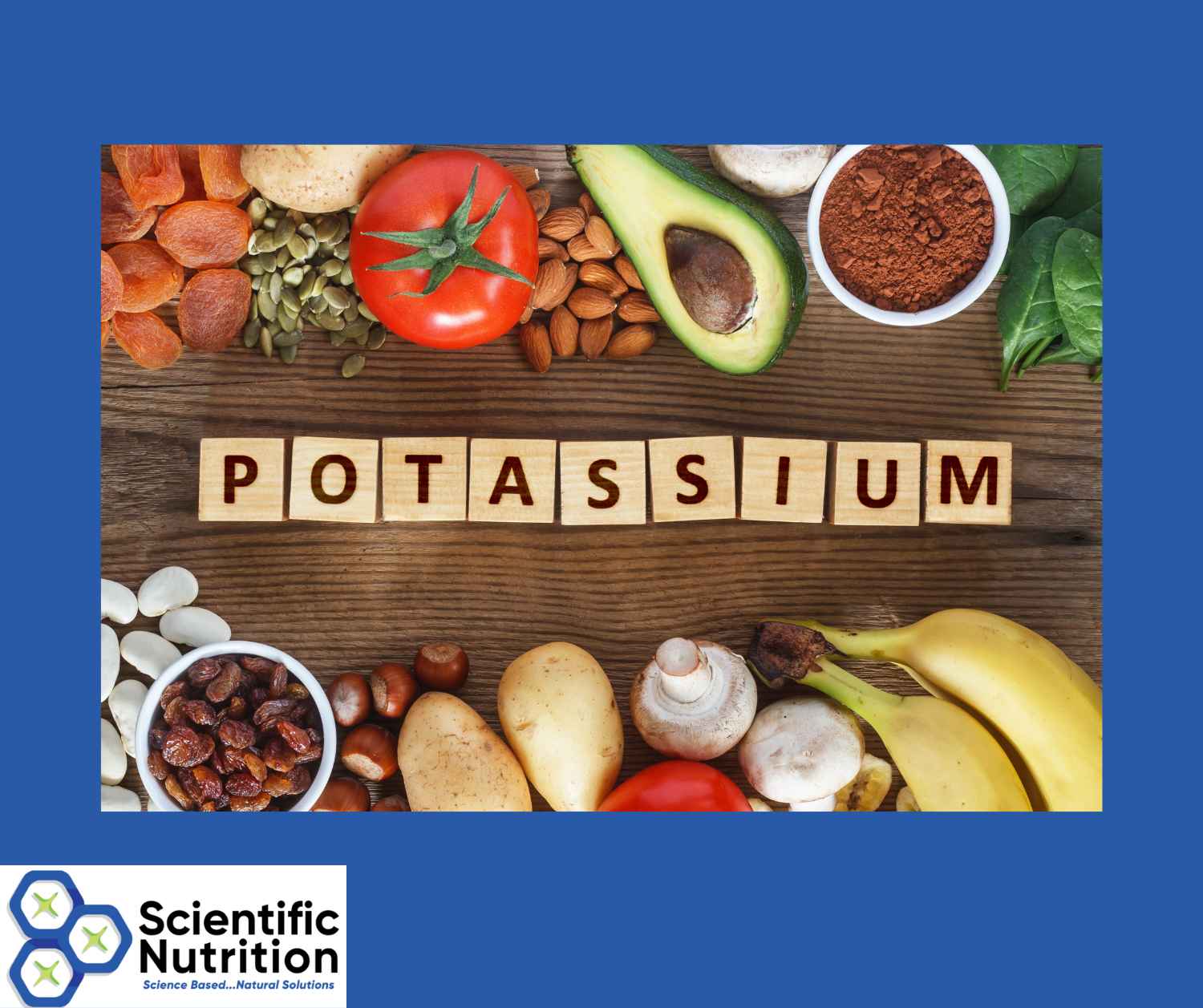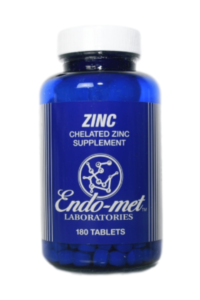Why is Potassium an important mineral?
Potassium (K) is ranked as one of the most prevalent minerals in the body. Around 98% of potassium resides within your cells.
This fact emphasizes its significance in our physiology. It acts as a conductor at a cellular level regulating the flow of ions in and out of cells. Proper balance is responsible for cell function, energy production, and waste removal.
Your heart health is dependent on this essential mineral as it helps to regulate the heartbeat and ensures that it remains steady and in control. At the end of this blog, you will know enough about potassium, including its imbalances like toxicity or deficiency, and its effect on your physical, mental, and emotional health.
But first, it is important to know that (K) functions along with sodium. So below is their interplay explained.
Interplay of Potassium and Sodium
These two minerals function in opposing yet complementary ways. They are like yin and yang within the body.
Sodium primarily resides outside cells. But potassium prevails inside the cells. Sodium facilitates the entry of water into cells, which causes them to swell. On the other hand, potassium promotes water exit, which leads to cell contraction.
This duo plays a pivotal role in blood pressure regulation.
Sodium (Na) retains water, which increases blood pressure, expands blood volume, and constricts blood vessels. In contrast, K counteracts these effects by promoting water excretion and relaxing blood vessels.
Now, here is the thing: your body generally needs more potassium than sodium. But the problem is that the food sources for both nutrients are opposite. You get sodium (bad iodized salt) from modern diets, but eating modern diets reduces potassium intake.
So, the balance is a must, yet it can be tricky if you are guessing.
What function does potassium perform in the body?
This major electrolyte performs several critical bodily functions. Here are some of the most important ones:
Muscle contraction and function
It enables muscles to contract and relax rhythmically. (K) is essential for every muscle movement, whether a small act of picking up a pencil or a complex task like running. Every time your heart beats, it is at work.
Nerve transmission
Nerves communicate with each other and with muscles through electrical signals. This important mineral ensures that these signals are transmitted accurately and efficiently. Without it, nerve impulses would sputter, disrupting sensation and movement.
Blood pressure regulation
This is the most common function of Potassium. It relaxes the blood vessels and helps the body excrete excess sodium through urine. This interplay maintains healthy blood pressure levels as I describe above.
Thyroid effects
Potassium is intimately linked to your thyroid function. When considering your Calcium (Ca) to (K) ratio, it can show you if the process is adequate or compromised.
Fluid balance
Potassium helps regulate fluid balance. Your body is predominantly water, so (K) ensures the right amount of fluid in and around cells.
pH balance
Your pH balance is critical for overall health. (K) keeps blood pH within a narrow and essential range. This prevents the body from becoming too acidic or too alkaline. Cancer loves for you to be acidic!
Potassium deficiency or Hypokalemia
Hypokalemia occurs when the level in your blood falls below the normal range. This condition can have subtle but far-reaching effects on your health. Let me share more on this condition.
Causes of potassium deficiency
You may face Hypokalemia due to;
- Inadequate dietary intake
- Extreme or ongoing stress and trauma
- Excessive potassium loss through vomiting or diarrhea
- Certain medications and underlying medical conditions like kidney disorders
Symptoms and warning signs of low potassium
Some common symptoms are;
- Muscle weakness and cramps
- Irregular heart rhythms
- Constipation
- Fatigue
Monitoring and measurement of (K) levels
You can easily monitor potassium levels in your body through a blood test. But, a blood test gives you limited details as it measures the level at the very moment. Hair Mineral Analysis is a month-long high-level view considered the most detailed and accurate test to measure your true cellular level.
Risk factors
Individuals with chronic conditions like kidney disease, heart issues, or gastrointestinal disorders are usually at higher risk of Hypokalemia. Identifying these risk factors allows for targeted prevention and management.
Physical, mental, and emotional effects of Hypokalemia -(K) deficiency
Hypokalemia affects not only your physical health but also your mental and emotional well-being.
Muscle Pain
Low potassium levels can lead to muscle pain. You can’t perform even the simple tasks. Muscle contractions become less efficient, and you may experience persistent discomfort.
Fatigue and weakness
Potassium deficiency often manifests as persistent fatigue and weakness. Regardless of how much you rest, you will feel physically and mentally exhausted. You push in a fight or flight pattern although you are tired down to the cellular level. Often there is a low blood sugar situation along with a low (K) level.
This mineral in excess can feel like an adrenaline junky burning up potassium reserves. This results in slow oxidation (metabolism) cascading into a sympathetic dominance pattern. Either slow down or the result will be illness and possibly death. Foods can’t rebuild such a deficit with both the thyroid and adrenals being compromised.
Heart irregularities
Hypokalemia can disrupt the heart’s electrical signals, which leads to the aforementioned palpitations, arrhythmias, and even more serious cardiac issues.
Mood and mental disturbances
Potassium plays a role in regulating neurotransmitters, which impact your mood. A deficiency may contribute to mood swings, irritability, frequent anger, depression, and increased levels of fear or stress.
Cognitive impacts
Hypokalemia can affect cognitive function. You may experience difficulty concentrating, memory, and mental clarity. It makes it challenging to perform daily tasks effectively.
Potassium toxicity/overdose or Hyperkalemia
Hyperkalemia occurs when an excessive (K) level is in the bloodstream. This condition disrupts the balance of it in the body and can have serious health implications. Overconsumption of potassium-rich foods is the major source of Hyperkalemia. Its symptoms and health consequences are almost the same as Hypokalemia.
Physical, mental, and emotional effects of Hyperkalemia
There are a variety of issues that can occur with a high level of potassium. Knowing what to look for is very important.
Physical symptoms
- overworked thyroid effects such as low energy
- heart palpitations, arrhythmia (irregular, flutters)
- chest pains
- weight loss
- nausea
- vomiting
- shortness of breath
- increased blood sugar levels
Emotional and mental disturbances
- stress
- volatility
- tendency to worry
- a lack of control over one’s life
- low self-esteem
How to correct potassium imbalance?
Knowing how to tackle its imbalance is essential to consider the importance of potassium balance. Here are a few ways that I can give you the solutions to your graphed Hair Analysis results.
Balanced diet and nutrition
Diet is the foundation for maintaining an optimal level. Eat potassium-rich foods like bananas, oranges, spinach, and sweet potatoes. The right dietary balance can help you prevent both deficiency and excess which can have similar symptoms. Knowing which side of the ideal you are on is essential for natural corrections.
Dietary supplements
Supplements can be a very valuable tool if your dietary sources alone can’t meet your potassium needs. Always take supplements under the guidance of a healthcare professional to avoid taking incorrect ones, not enough, or too much.
It is important to note that taking this mineral when you are low will not correct the imbalance. Some other mineral or heavy metal is interrupting the use of it effectively. You can accumulate more of a toxic load as you are not equipped to utilize it. A large increase may also disrupt another mineral’s balance.
Consultation with a professional Nutritional Consultant
If you suspect a (K) imbalance or have risk factors, consult a Hair Analysis specialist like myself. As a professional, I can assess your condition better, recommend targeted supplements, and specific detoxification, and develop a tailored dietary plan for achieving balance.
FAQs
Can potassium deficiency be prevented through diet alone?
Possibly. A well-balanced diet rich in potassium-rich foods like fruits, vegetables, and legumes can prevent potassium deficiency for most individuals. Once an imbalance happens, it may take a full spectrum of supplements to rebuild the balance. This helps to avoid another imbalance.
How much potassium do adults need daily?
Adults typically need about 2,500 to 3,400 milligrams of potassium daily, but individual requirements can vary. I’ve found that while supporting the balances of all minerals (much like a baby mobile) you can rebuild the stores in the cell. Again, taking the mineral directly in a supplement form will not correct the balance.
Are potassium supplements safe?
Taking this particular supplement should be used under medical supervision, as excessive intake can be harmful. Always consult a healthcare professional before taking them as an individual supplement as it can also lead to consequences mentioned above in the toxicity section.
What foods should I avoid for Hyperkalemia?
Limit higher potassium foods like fruit, carrot juice, leafy greens, legumes, tomatoes, dairy, spinach, potatoes, and more. Avoid salt substitutes containing potassium chloride. We can consult further for specific dietary guidance by using your Hair Mineral Analysis results.
Can potassium imbalances be managed through exercise?
Exercise can help with your (K) balance. However, it should be complemented with a balanced diet and proper supplementation, especially if you have an existing potassium-related condition.
When should I seek medical attention for potassium-related issues?
Seek immediate medical attention if you experience severe symptoms like irregular heartbeat, muscle weakness, or confusion. For milder symptoms or concerns, consult me for guidance in re-balancing your level.
To know where your level is at, LET’S CHAT about your health goals!
** Nothing in this report is intended to diagnose, treat, or cure any condition or disease, nor is it intended to replace the advice of a medical doctor**
Further Reading and Studies
https://www.hsph.harvard.edu/nutritionsource/potassium/
https://as-botanicalstudies.springeropen.com/articles/10.1186/1999-3110-54-2
https://www.healthline.com/nutrition/what-does-potassium-do
https://pubmed.ncbi.nlm.nih.gov/23674806/
https://ods.od.nih.gov/factsheets/Potassium-HealthProfessional/




